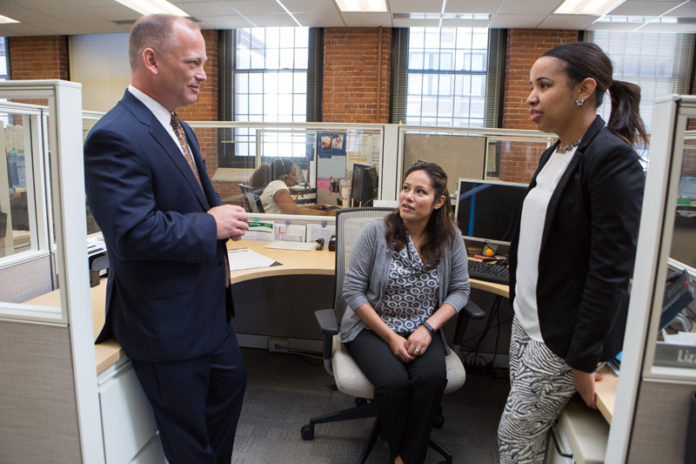
Should potential conflicts of interest involving disbursement of government funding be avoided at all costs?
If you are WatchdogRI.org, a nonprofit policy-research organization founded by former Republican gubernatorial candidate Ken Block, there’s no debate – at least as it relates to Neighborhood Health Plan of Rhode Island.
It’s an “obvious and reckless conflict of interest … a potential fox guarding the hen house” scenario, said Block of the composition of the Medicaid-contracted nonprofit’s board of directors. Half of the 16 members of Neighborhood’s board are employees of the community health centers that receive payment for Medicaid services from Neighborhood.
The board vice chairwoman is Jane Hayward, president and CEO of the Rhode Island Health Center Association. The chairman is Peter Bancroft, president and CEO of WellOne Primary Medical and Dental Care. By WatchdogRI.org’s count, that leaves just six “un-conflicted” board members. In fiscal 2015, the nonprofit HMO received $970 million in Medicaid reimbursements, for an average enrollment of 151,500 members, according to the state.
“Neighborhood should have a fiduciary responsibility to return the best value for the state,” Block said. “This might conflict with the best interests of the community health centers who control the board.”
But Neighborhood and the health centers counter that the arrangement not only isn’t new, but it is an advantage in ensuring the funding is getting to where it is needed most.
Since Neighborhood was founded in 1993 by community health centers, executives representing the latter have served on the board.
“Our board structure has proven to be a key advantage for our organization and a great benefit for members and taxpayers,” said Neighborhood President and CEO Peter M. Marino, in a statement responding to Block’s criticism.
“Both the community health centers and Neighborhood share a mission to make sure all Rhode Islanders can access quality, affordable health care,” he said. “Our record of quality and financial successes shows this alignment works.”
While such board arrangements are not unique in the health care industry nationwide, the key is to ensure proper oversight, says Ted Almon, chairman of Warwick-based The Claflin Co., and of HealthRIght, a statewide group focused on health care reform.
“The most effective board advisers are often people in the same or related businesses that might have potential, if not actual conflicts,” he said. “This of course presents a delicate balance between the appearance of conflict and actual corruption.”
It’s the state’s responsibility to help prevent or root out corruption in such instances.
The Medicaid division of Rhode Island’s Executive Office of Health and Human Services primarily contracts with two managed-care firms – Neighborhood and UnitedHealthcare of New England – to administer Medicaid for 80 percent of Medicaid enrollees. UnitedHealthcare in fiscal 2015 received $522 million in Medicaid funds, with an average enrollment of more than 100,000 members.
Sophie O’Connell, EOHHS deputy communications director, told Providence Business News that “EOHHS has responsibility for and provides robust oversight of the Neighborhood and UnitedHealth contracts through monthly reporting on all lines of business, monitoring of finances, operations and quality programs.” She said EOHHS holds “regular meetings to review and ensure compliance with contractual obligations.”
Block’s group acknowledges it is not aware of any actual wrongdoing involving Neighborhood’s disbursement of the Medicaid funds.
But in a news release last month he said “taxpayers would be better served to have Neighborhood’s board be completely independent of the service providers to whom it makes payments, making clear that the board presents no opportunity for conflict.”
Hayward, however, pointed to the strict state oversight of the Medicaid program and said Neighborhood’s success to date would not necessarily be improved by appointing more outsiders to the board.
“We have been providing good governance for years with no conflict problems and have been consistently recognized as being among the top 10 Medicaid programs,” she said.
An example would be the success of RIte Care, which provides health care coverage for qualified parents, children and pregnant women through Neighborhood and UnitedHealthcare. Last year it was recognized as the best in the nation for quality by the Centers for Medicare and Medicaid Services. •










